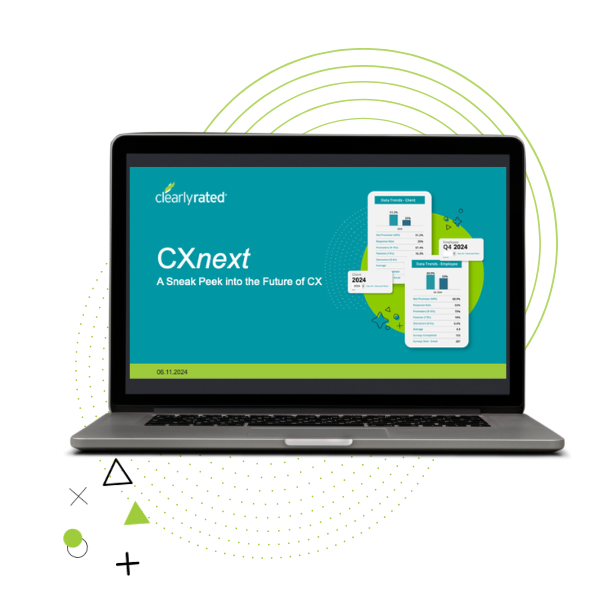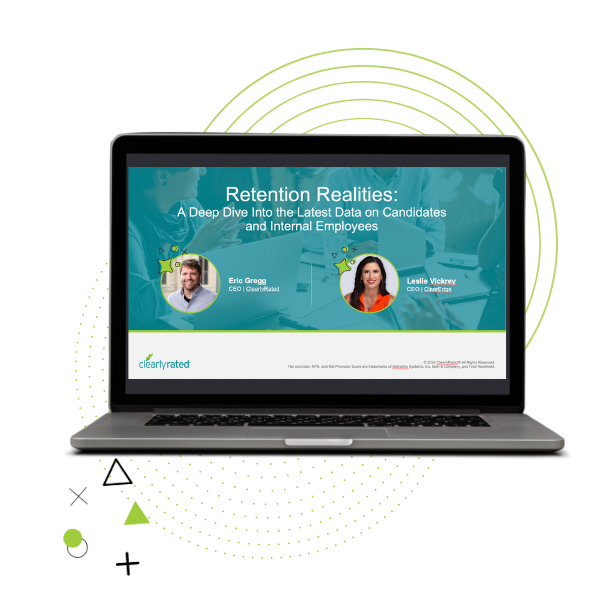
“Should I be surveying my temporary talent during the COVID-19 outbreak? I’m afraid that with all of the bad news out there currently that they won’t respond or it will seem inappropriate.”
I received this question from a client of ours; a long-time staffing leader who takes the experience and satisfaction of the talent his firm places very seriously.
Unfortunately, his commercial staffing business is taking a hit during the economic recession caused by COVID-19. His firm runs our Talent Engagement survey program (surveying talent at onboarding, at the 30-day mark, and the end of assignment), and they credit the program with improving their retention levels, identifying potential safety issues, and improving their relationship with candidates.
In other words, this was a serious question from someone who gives the talent they place a lot of attention. And since that call, my team and I have had a variation of the same conversation with a few other clients of ours.
Below I’ve shared answers to 5 common questions we’ve been hearing about surveying candidates during COVID-19. My goal in sharing this perspective is to help you clarify your strategy for how to engage with placed talent and ask for their feedback during these times of uncertainty.
1. Will it seem inappropriate to ask my talent on assignment for feedback?
The short (and only) answer is “no.” In fact, it may seem inappropriate not to check in with your talent during COVID-19.
While my answer to this question varies a bit for client surveys, with talent it is really pretty clear. Talent who have been placed on assignment want to hear from you; it’s one of the key ways that you can help them feel supported.
As the staffing firm who placed them, you are their employer of record, and they are your extended team. And in stressful, uncertain times, it’s impossible to over-communicate how important they are to you. In fact, both response rates and NPS scores from placed talent have increased since COVID-19 began causing disruptions in North America. Our industry’s talent is more engaged (and appreciative) than ever.

The talent you have placed in active assignments have never meant more to your business. Alongside the higher scores, our clients have also seen an outpouring of gratitude and appreciation. Our industry is doing hero work for those in need of employment, and most understand how fortunate they are that someone in your firm believes in them. Issues still arise, but the prevailing theme has been gratitude for the support and care.

2. Right now, I’m focused on our client satisfaction. How does surveying placed talent impact that?
With clients ending assignments and new orders slowing or stopping outright, it’s natural to want to focus on clients. And in many ways, that is the right approach. However, the most important thing you can do for clients right now is to help ensure that the talent you have placed with them have what they need to successfully complete their assignments.
All of your clients are doing more with less than they were a month ago. The last thing they need is to have the added stress of turnover or to be put in a situation where they are responsible for troubleshooting or resolving issues with talent you have placed. Help your clients out by supporting your talent, and do it without having to be asked. That’s what partners do, and that’s how you will be judged as their businesses start to normalize and build for the future.

3. I’m worried that we’ll get blamed for our clients laying people off or ending assignments early. Are temporary employees blaming their staffing firms when they get laid off?
Everybody, your placed talent included, understands that COVID-19 is currently in charge, and that it is causing layoffs and business slowdowns at a historic rate. Your team can’t control who is (or isn’t) laying people off, but they can control the tone.
Communication around layoffs should always be high in empathy, delivered proactively, and shared with tremendous care. This is no different. When assignments end prematurely, people don’t blame you for that. They do blame you if there are communication breakdowns or they perceive that you don’t care that they have been impacted. Control what is in your control, gain visibility at the field level by measuring talent satisfaction across key moments-of-truth (onboarding, end-of-assignment, etc.), and hold your team accountable to ensuring that your talent feels supported, especially in times of crisis.

4. Should I be asking my talent directly about COVID-19?
That’s a judgment call. Many of the staffing firms that we work with have added a question or two around COVID-19, and generally the results have been positive. Two of my favorite potential questions to ask are:
- What concerns or questions do you have about COVID-19 that we could help with?
[open-ended response] - Regarding COVID-19, what are your top concerns or suggestions you’d like us to know about?
[open-ended response]
Again, don’t fail to ask the question because you worry about the answer. If you ask about COVID-19 and your placed talent does need something from you, it is a gift to have that information. Those feelings existed within that person prior to the survey, and your team was going to have to address them in some manner eventually. The survey just raised them to the surface so you could be proactive in addressing the concerns before they became an issue on the assignment.
5. Do the recent SBA loan programs impact whether I should survey or not?
The Paycheck Protection Program (also known as the PPP), part of the CARES Act, provides a strong incentive to retain or rehire key staff, as retention of your talent is the primary criteria for loan forgiveness through the SBA. For staffing firms, this means not just your internal staff, but also those W2 temporary employees you place on assignments.
For many staffing and recruiting organizations, the PPP forgiveness criteria generates a dollar-for-dollar forgiveness of the loans for each individual who is retained through the eight- week period following the loan’s start date. Said another way, if you receive funding through the PPP, each person who quits or has an assignment ended by the client will cost you thousands of dollars on top of the normal expenses as their impact is backed out as part of the loan forgiveness equation.
A real-time Talent Engagement survey program is an obvious measure that can be taken to improve retention and increase the percentage of your temporary employees who are redeployed in a timely fashion, increasing the likelihood that your firm will be able to keep the dollars granted through the PPP.
Ultimately, engaging meaningfully with your talent is more important now than ever.
There is a great deal of uncertainty right now due to COVID-19, and it’s affecting our personal and professional lives. Don’t miss an opportunity to build loyalty and maintain open communication with your staffing firm’s economic engine, the talent you worked so hard to place.
Now is the time to increase your engagement with this audience, with every assignment critical to your firm’s financial success.





